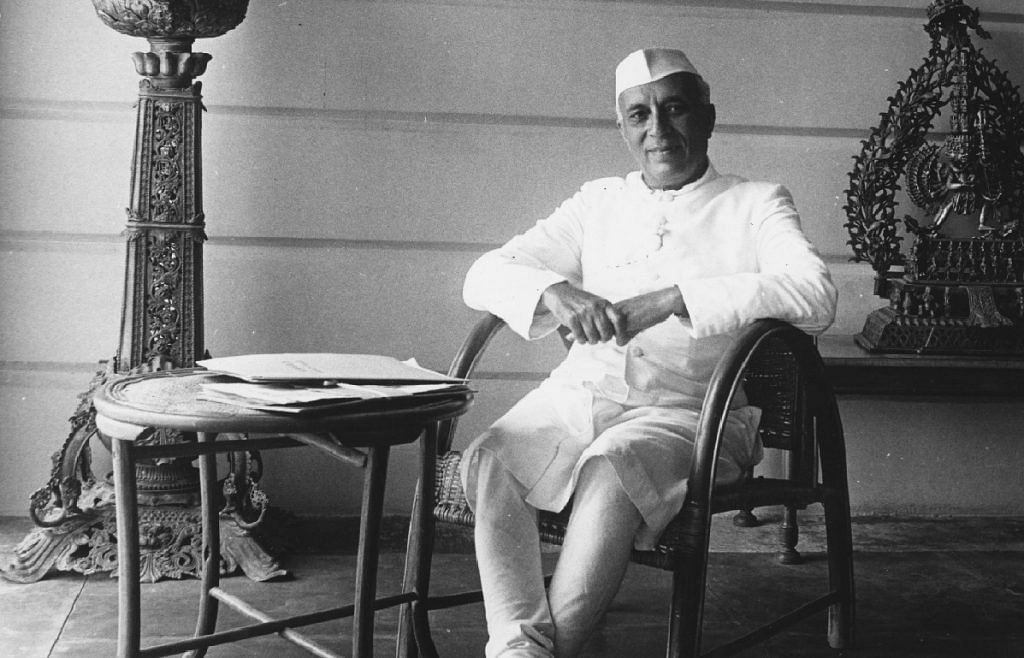To include any other Prime Minister in the Nehru Museum is to tamper with the soul of India.
Just as ancient Indian history is incomplete without the legacies of emperors Ashoka and Akbar, the modern history of India cannot be analysed without understanding the decisive role played by Pandit Jawaharlal Nehru and Indira Gandhi. These two leaders were the founders of modern India. Among the two, the contribution of Jawaharlal Nehru has been so significant that it will have an impact on generations to come. Nehru pulled India out of the economic crisis after Independence. As a result, India is almost at par with other industrialised countries of the world.
Before Independence, Nehru was deeply affected by widespread poverty and the plight of peasants in India. Hence, after Independence Nehru prioritised development. He made policies keeping the poorest sections of society in mind. He decided to allocate the nation’s wealth without ignoring the poor.
According to Nehru, India was never a poor country. Its wealth was drained after 200 years of colonial rule. The basis of his socialist thinking was the plight of the underprivileged and those living like slaves under colonial rule. After Independence, Nehru wanted the direct involvement of poor people in the process of development. This way their lost self-esteem and pride could be restored. He had a conflict of interest with other party leaders regarding the establishment of parliamentary democracy in India. There was a point where he stood against his father Motilal Nehru’s Swaraj Party.
Also read: In his desire to snuff out Nehru’s legacy, Modi to launch his Museum of Prime Ministers
India today is just a glimpse of Jawaharlal Nehru’s foresight. There are some critics who hold Nehru responsible for the Kashmir issue, but they forget that Jammu and Kashmir was a princely state. It was Maharaja Hari Singh of Riyat who expressed his desire to join India when Pakistan invaded the princely state.
Every Indian will agree that the education system created by Nehru enabled students from ordinary families to reach extraordinary heights. Nehru’s dream was to make a farmer’s son an agriculture engineer. Nehru also strengthened the health services in the public sector by establishing institutions like the All India Institute of Medical Sciences (AIIMS). But today we have destroyed Nehru’s legacy by turning educational institutions as well as hospitals to mere money-making machines.
When we think of the cherished legacies of other Indian Prime Ministers, the names of Indira Gandhi and Lal Bahadur Shastri automatically come to our minds. Their museums already exist.
P.V. Narasimha Rao has been the weakest and most inefficient prime minister of this country by far. He opened the markets to foreign investors which in turn robbed the hard-earned wealth of Indians. The country’s economy had already been eroded to a great extent by the policies of V.P. Singh and Chandrashekhar. Narasimha Rao nervously opened the Indian market to foreign companies and agreed to put off foreign exchange payoff.
Indira Gandhi also faced severe economic crisis after the death of Lal Bahadur Shastri. But she tackled it by devaluing the currency for the first time. Indira Gandhi claimed that the Partition of Pakistan in 1971 was a political ploy in the name of religion. On the other hand, Narasimha Rao completely destroyed the secular heritage by letting Babri Masjid get demolished in front of his own eyes while he was in power at the Centre. This was similar to the Partition of 1947 which led to communal tensions in the country. Indira Gandhi showed to the world that Partition of the country in the name of religion was only a ploy by Pakistan.
Also read: New Teen Murti museum on memories of ex-PMs doesn’t snuff out Nehru’s legacy by any means
Can we carry forward the burden of such destructive legacies of Indian Prime Ministers? Would we want to preserve the memory of V.P. Singh who took Indians one step backward as a civilisation by dividing them on the basis of their caste, creed and ethnicity?
Atal Bihari Vajpayee’s government ruled for six years. In spite of this, it could not reduce financial scams in the country. He formed a new disinvestment ministry to sell off government assets. Vajpayee used humour to further parliamentary democracy. Yet to a great extent, he has kept the spirit of Nehru alive in his policy decisions.
Every statesman from Chaudhary Charan Singh to Deve Gowda and I.K. Gujral had been ‘accidental’ Prime Ministers. It is not known why Morarji Desai was honoured with Pakistan’s biggest national honour of “Nishan-e-Pakistan”. To include any other Prime Minister in the Nehru Museum is to tamper with the soul of India, which lingers far and wide, from Gangotri to the Arabian Sea. Nehru ultimately passed away one and a half years after China’s betrayal in 1962, shaken to the core.
This editorial was originally published on Punjab Kesari. Translated by Gaurav Kumar.
